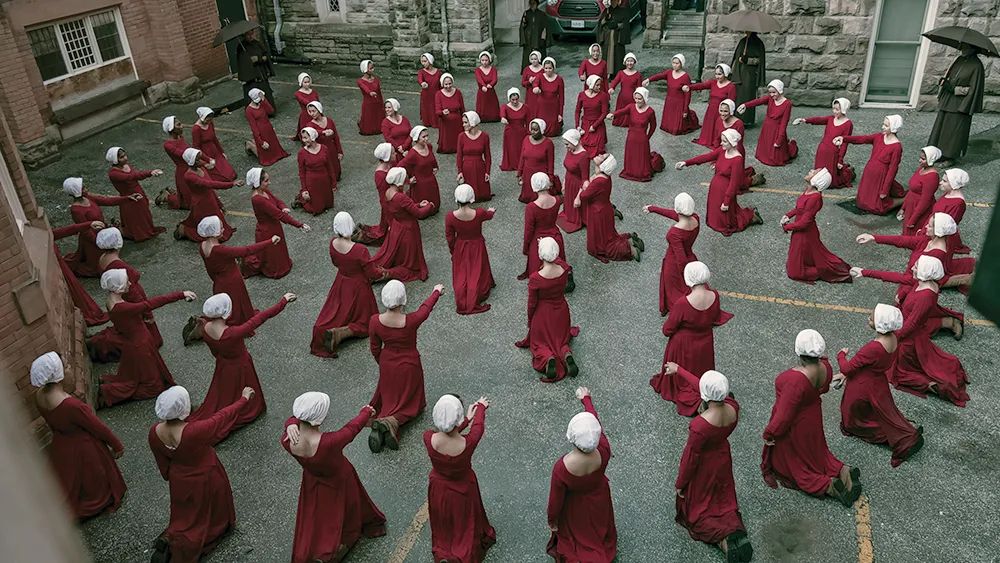The Handmaid’s Tale is an American television series created by Bruce Miller and based on the bestselling novel by Magaret Atwood. The story follows a society in what used to be part of America that is now known as Gilead. A core aspect of Gilead regime is their practicing of fundamentalism, along with treating women as property of the state. Due to an obsession to repopulate a depopulated society, fertile women are captured and forced into sexual servitude, which are called Handmaids, in order to produce babies for Gilead. Among the Handmaids is a woman named Offred, known as June before the rise of Gilead, who is determined to survive the terrifying world she lives in and to find her daughter who was taken from her before forcefully making her a handmaid.
The series, which was first produced in 2017, is a dystopian exploration of female oppression, how individual freedom has been stolen from the people and the hidden dangers of religious extremism. Fertile women are obligated to give birth to children for the ruling elite, while every aspect of their lives is controlled, from what they eat to their every move. This brings an awareness to abuse of power, systematic stripping away of fundamental rights, especially when it comes to women, women’s sexual and reproductive freedom, gender roles and sexuality. It also interprets as commentary on sexism in the book of Genesis.
This series solely focuses on Offred, a handmaid assigned to Commander Waterford and his wife Serena Joy, and her struggle for survival as she tries to rebel against Gilead and its crushing regime. Before the takeover of Gilead, Offred was called June and had a husband named Luke, along with her daughter, Hannah. Her life becomes complicated, as she ends up falling in love with her commander’s driver, who she later bears a child with. The two head on to pursue a relationship, all the while Offred has no clue whether her husband is still alive. June is one of the strongest characters. Her character transitions to her thriving to bring Gilead down with the help of other handmaids and few trusted people from the inside of Gilead.
Gilead established a strict patriarchal society with very little say from women, even their wives at home. The series’ dark story explores fear and violence on women. Their bodies were being used as a national resource. Women were subjected to harsh punishment if they showed any resistance to what was ordered of them. Punishments like cutting out their tongues, ears, plucking of eyes or chopping of fingers etc., are common practice in Gilead.
One of the darkest and most upsetting things of the series is “the Ceremony.” During this a handmaid is laid between the legs of the wife and has her hands held down while the commander performs a ritualized sexual act in hopes of conceiving a baby. The nation believes it is doing what is right according to the word of God, thus believing that they are saving the population.
“The Handmaid’s Tale” serves as a powerful warning about the dangers of extremism and the loss of individual rights. The series challenges viewers to reflect on the value of freedom and the consequences of a society that devalues women’s autonomy. Provoking themes and emotional depth make it a significant work that resonates with current social issues, spiking discussions about gender, power and resistance. The series also brings up conversations comparing what allegedly happens in today’s communities. It highlights concerns on ongoing debates regarding abortion access, access to IVF, and the role of government in personal health decisions. It also raises concerns on gender inequality, violence towards women, unequal pays and religious extremism influencing political policies. The first few episodes of “The Handmaid’s Tale’s” final season were just released April 8th, and this will not be a spoiler. The series is such an eye and mind opener and should be a must see with viewers discretion.









